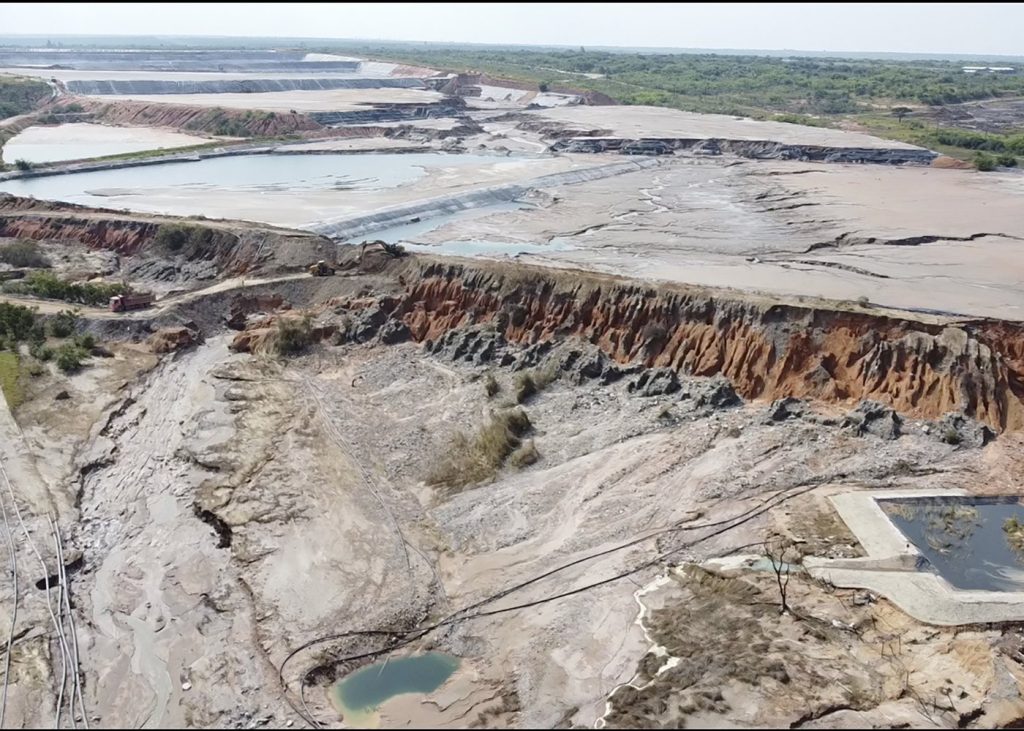KITWE, Zambia (AP) — Authorities and environmentalists in Zambia are deeply concerned about the long-term effects of an acid spill from a Chinese-owned copper mine that contaminated a major river, posing potential risks to millions of people. Pollution signs were detected over 100 kilometers (60 miles) downstream from the site of the incident.
The acid spill occurred on February 18, 2025, when a tailings dam holding acidic waste from the mine collapsed. Investigators from the Engineering Institution of Zambia report that around 50 million liters of hazardous waste, including concentrated acid, dissolved solids, and heavy metals, flowed into a stream that is connected to the Kafue River, which serves as Zambia's primary waterway.
Environmental activist Chilekwa Mumba has characterized the situation as an "environmental disaster" with catastrophic consequences. Chinese-owned copper mines play a critical role in Zambia's economy, as the country is among the world’s top ten producers of copper, a vital component in technology like smartphones.
Zambian President Hakainde Hichilema has sought assistance from experts, labeling the leak as a crisis threatening both human populations and wildlife along the Kafue River, which spans over 1,500 kilometers (930 miles) through Zambia. Currently, investigations are underway to assess the full extent of the environmental damage.
Reports from the Kafue River indicate a grim scene, with dead fish washing up on the banks approximately 100 kilometers downstream from the Sino-Metals Leach Zambia mine. The Ministry of Water Development and Sanitation has stated that the "devastating consequences" also comprise destruction of nearby crops. Authorities express worry that contaminants from the mining waste may seep into groundwater resources, further exacerbating the situation.
Local resident Sean Cornelius recounted that prior to the spill, the river was vibrant and teeming with life, but now he describes it as a “totally dead river.” Approximately 60% of Zambia's 20 million residents live within the Kafue River basin, relying on it for fishing, agricultural irrigation, and industrial water. The river also supplies drinking water to about five million people, including those in the capital city of Lusaka.
The incident has completely disrupted the water supply in Kitwe, a city home to around 700,000 people. In response to the emergency, the Zambian government has deployed air force personnel to disperse lime into the river to neutralize the acid and mitigate damages. Speedboats are actively engaged in this effort as part of the cleanup operations.
Cornelius Mweetwa, a spokesperson for the government, indicated that Sino-Metals Leach Zambia would bear the financial responsibility for the cleanup. Meanwhile, Zhang Peiwen, the chairman of Sino-Metals Leach Zambia, publicly apologized for the spill during a meeting with government officials, claiming that the incident has prompted a significant alarm for the mining industry.
The environmental repercussions of China’s extensive mining operations in mineral-rich regions of Africa, including Zambia, have drawn criticism over safety violations and negligence. Many have expressed dissatisfaction with the Chinese presence, particularly as Zambia grapples with over $4 billion in debt to China and repercussions from past loan defaults.
In addition to the major spill, authorities reported a smaller leak from another Chinese-owned mine less than a week later, leading to allegations of attempts to conceal the incident. Local police confirmed that an employee at this second mine died after falling into an acid pool. Despite orders to cease operations, reports allege that the mine continued its activity. Subsequently, authorities have taken action against both mining operations until the situation is rectified, further fueling public anger over the environmental neglect.










